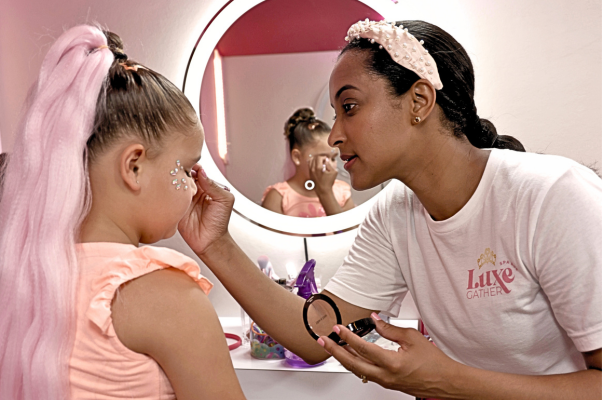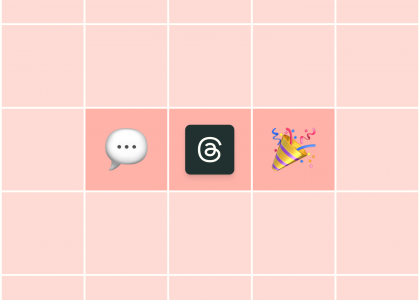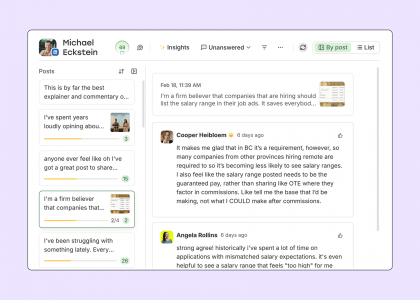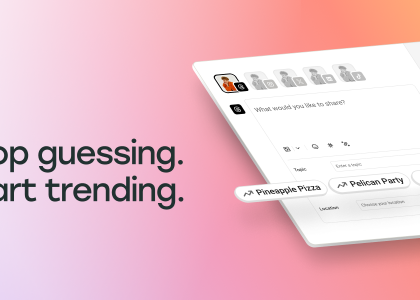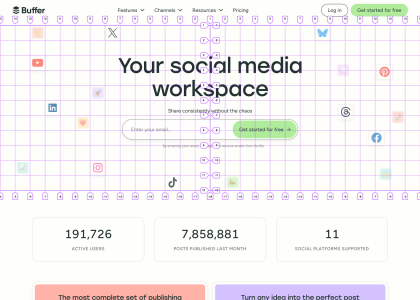When I launched my kids’ spa party bus, Luxe Gather, in 2022, it felt especially challenging given my business is fairly niche and a new concept to many. I knew that building brand awareness would be critical and that showing off the party bus experience would be valuable to help parents get a tangible sense of what we offer.
Given these goals, building a strong Instagram presence felt like a natural fit. Most of our target audience is moms, who I know spend a lot of time on the social platform — 68 percent of U.S. moms use it daily. I also felt Instagram Reels would be the perfect way to show snippets of the party experience.
Ultimately, reels is just one piece of my social strategy and marketing funnel, but it’s created a critical foundation for brand awareness and education. Here’s how I quickly developed the right reels strategy for connecting with customers, how I streamline the process as a busy business owner, and how reels plays into converting customers.
I started with DIY customer research to fine-tune my messaging
Before I created a single Instagram Reel, I wanted to nail down the best way to message my business to catch the eye of my target audience. What do moms care about most when it comes to planning a birthday party for their daughters? What draws them to one party option versus another?
I had some ideas based on my own experience as a mom, but I wanted to hear the perspective of others, too. Unfortunately, like most business owners, I didn’t have the time to do extensive customer research.
So, I found a more roundabout, DIY approach: reading the reviews of similar businesses. Looking at spa buses in other markets as well as indirect competitors in my area of South Florida (e.g., other kids’ party businesses), I compiled what actual moms were saying in their reviews.
By organizing these thoughts in Notion, I started to see common themes: how special their kids felt, how important cleanliness and customer service was, and how organized the experience was.
Since launching the business, I’ve also reached out to our customers to ask for reviews or thoughts, and I feed this information back into my “voice of the customer” research.
This has since formed the foundation of a messaging document that I refer back to whenever I’m working on reels. By pulling content themes and copy directly from people who have enjoyed a business like mine, I can give my messaging a stronger chance of resonating with future customers.
I use templates and trending audio to easily make compelling reels
I knew from researching Instagram best practices that consistency is essential for building an audience and keeping engagement high, so I had a goal of posting two to three reels each week. Any small business owner knows that’s a lot of content to create on top of everything else on our plates. So, I found a few ways to make the job easier on myself.
First of all, I am always collecting content. Part of our party experience is that we take photos and videos of the kids throughout the event to send to the parents afterward. With the parents’ permission, I add all of this to a library of footage I can pull from when making reels.
Then, I created several reels templates in CapCut and InShot that I can easily plug this content into. For example, one template shows off the entire party experience, another focuses on the partygoers’ happy faces, and another focuses on specific theme parties we offer. I also keep a bank of Instagram captions and copy that are aligned with my messaging that I can reuse and tweak. This may seem repetitive, but I’ve found that once you have messaging that works, you have to consistently share it for it to stick.
Finally, I pair many of my reels with trending audio to help make them more engaging and discoverable. I’ve discovered a specific niche of Instagram trending audio that works particularly well: Anything that’s trending but still under 2,000 reels using it (which you can see by clicking on the audio on Instagram if you’re in the U.S.), and that is family-friendly.
I’ve found when an audio has too many reels already using it, it’s hard to be discovered. When I’m browsing Instagram, I note trending audios that fit these criteria, and copy and paste them into an Excel spreadsheet. Then, when I’m creating reels, I can select one that fits the content.
Systemizing my Instagram Reels like this not only makes the job easier for me, it’ll be simple to hand off when I’m ready to outsource marketing.
I think holistically about how reels can lead to sales
I’m always looking for ways to drive more conversions from my Instagram Reels. For example, I always include a CTA (call to action) in the reel itself (not just the caption), I share each reel in my story with a direct link to book a party, and I cross-post every reel to Facebook.
But I still have to remind myself that, ultimately, reels are a more top-of-the-funnel strategy for us. Reels only account for 18 percent of our bookings, while Google ads drive 51 percent.
However, I don’t think our ads would be as successful without having reels supporting them. Since we’ve been sharing reels regularly, we’ve seen an uptick in brand search — people in the South Florida market discover us thanks to location-specific hashtags then Google our name to learn more.
People who see the experience of our parties thanks to the reels are more likely to click on an ad because there’s some brand recognition. Finally, people who discover us through a Google ad may research us on Instagram.
There’s no one magic-bullet strategy when it comes to marketing a small business. It’s like a puzzle, with different pieces that support different goals. I’m still constantly testing and tweaking to figure out the best way for all the pieces to fit together, but I trust that our Instagram Reels will always provide a strong foundation to get customers excited about what we have to offer.


